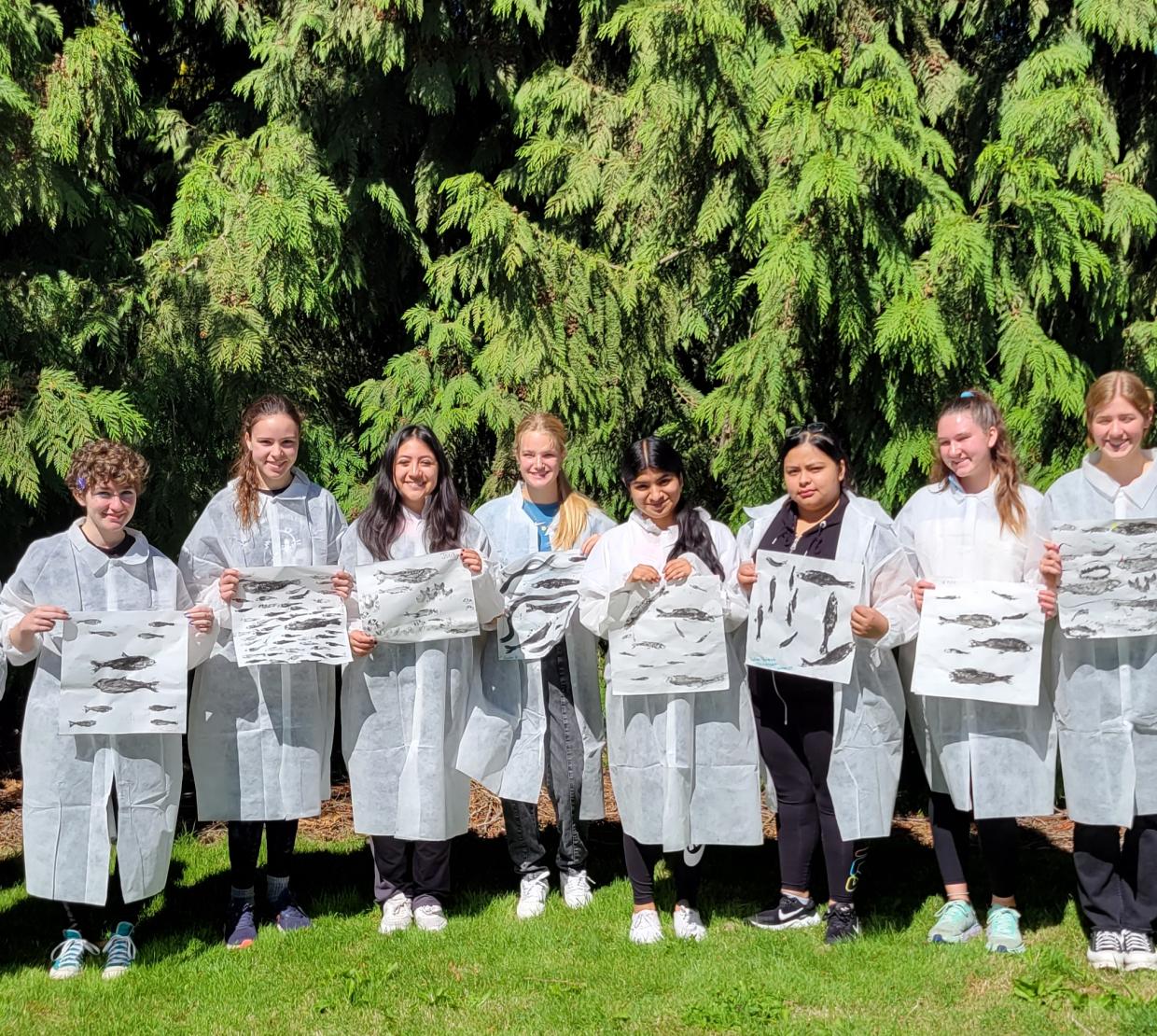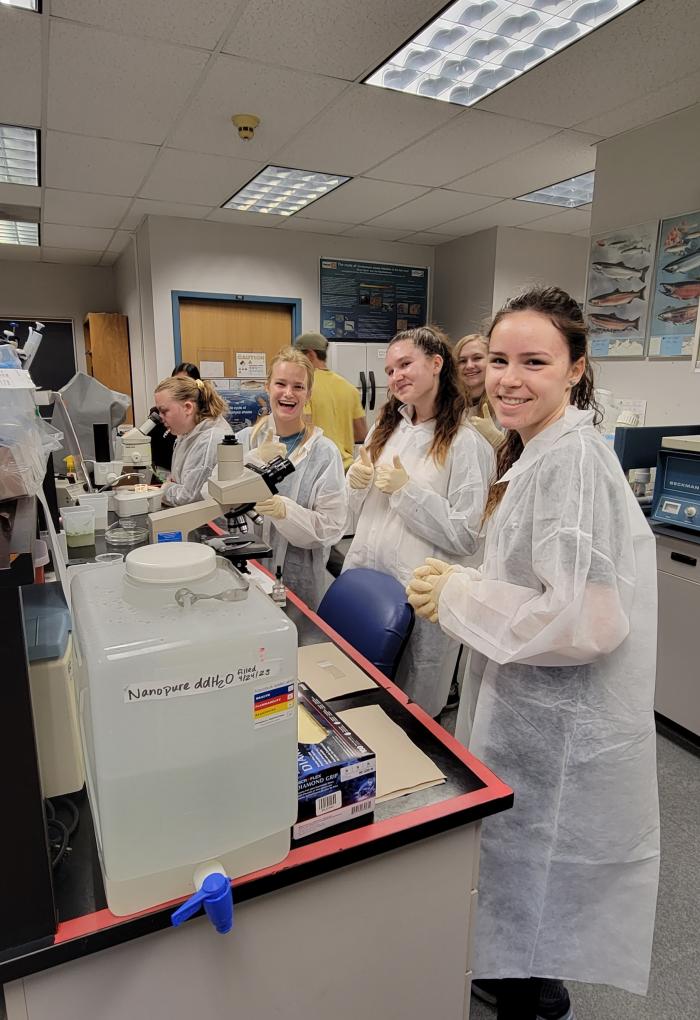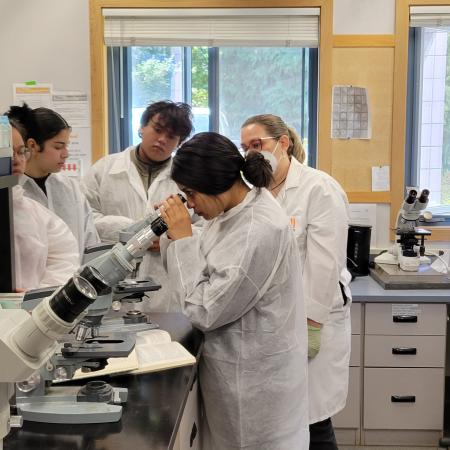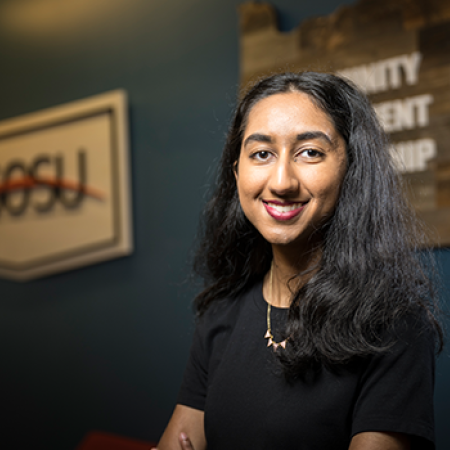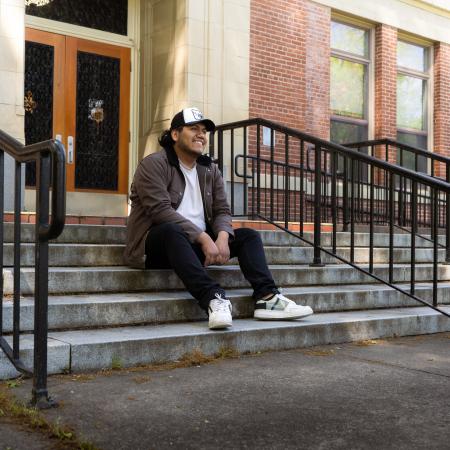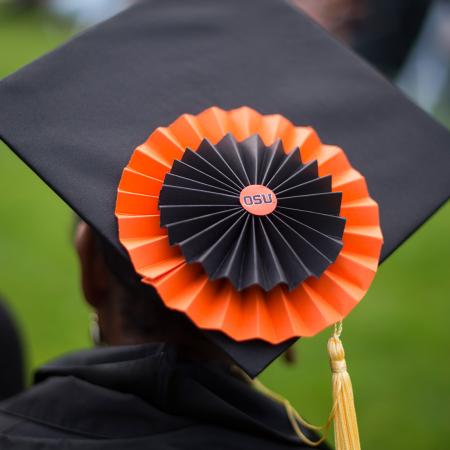When an autistic high-school student meets an autistic science mentor, a whole new world of possibilities opens. When a shy high-school student is encouraged to embrace curiosity and ask questions, their path to college gets easier to navigate. And when an underrepresented high-school student is given a scholarship to attend a microbiology STEM camp, it can change their world.
The Pernot Microbiology camp, held by the Department of Microbiology on the OSU Corvallis campus, is a transformative, once-in-a-lifetime summer experience for historically underrepresented or underserved high school students aspiring toward STEM careers.
Growing up as a low-income Hispanic person in rural Montana, camp creator and past director Savanah Leidholt (‘22-23) witnessed the lack of STEM opportunities for youth in these demographics and decided to take action after becoming a graduate student at Oregon State. She created a week-long immersive science camp, where a younger version of herself would have thrived.
LGBTQ+, women, BIPOC, low-income and other students from diverse backgrounds are welcomed into a safe space to explore microbiology. Students learn about three subfields of the discipline, including Food System Science, Human Health and Disease, and Aquatic Microbiology. Participants conduct microbiology-focused lab experiments, go on field trips and hear from diverse speakers about career avenues and opportunities in STEM.
“Even their ability to ask questions grows. I know it's difficult to ask questions but by the end of the camp, these students are conversing with us and just ready to ask questions and learn."
In the first year of the camp, held in 2022, students learned how to use pipettes, the small glass or plastic tubes used in labs. They also collected cheek cell swabs, extracted DNA from potato salad, toured Corvallis’ wastewater facility and applied microbiology to arts and crafts.
“This camp gives students a safe space to be curious, grow their confidence, work with their peers and find out what they like and don’t like,” said microbiology graduate student Sunni Patton, the new camp director. “It provides experiential learning opportunities for students who would otherwise not be able to participate.”
Most students don’t experience a microbiology lab until college. The Pernot camp allows them to see more career avenues. “It’s a way to open new interests and hobbies. A way to expand, open doors and make friends,” wrote one student who said they would recommend the camp to their friends.
"I liked that one of the mentors is autistic; it makes me feel welcomed as someone with autism,” wrote another student.
